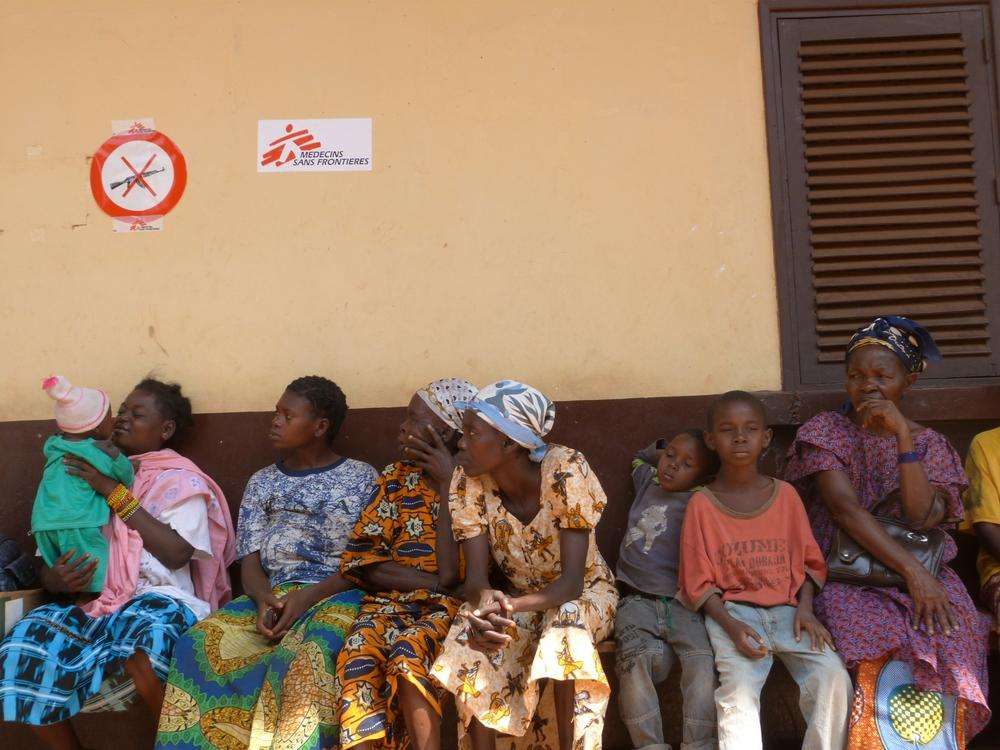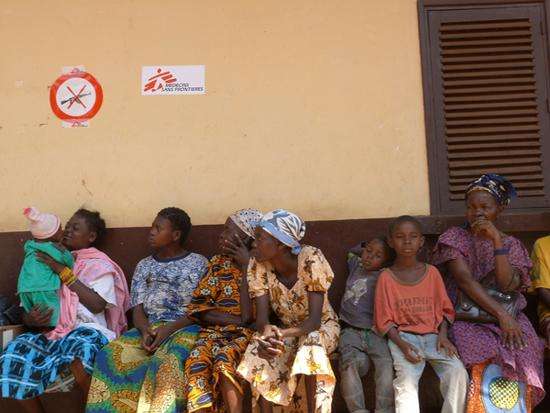As the government of CAR attempts to implement a peace deal with rebel groups, MSF is expanding its emergency response for people affected by the conflict.
As the government of Central African Republic (CAR) attempts to implement a peace deal it struck with rebel groups in the country, Doctors Without Borders/Médecins Sans Frontières (MSF) is continuing to expand its emergency response to thousands of people who have been affected by the conflict. MSF is also negotiating for greater access to areas where health care staff has fled and basic medical services are no longer available.
In recent weeks, as the conflict worsened, thousands of civilians fled their homes and sought refuge in the bush, where they tried to subsist without proper shelter, safe drinking water, or access to medical services. On January 10, MSF opened an emergency project in the government-held frontline town of Damara and began providing basic health care, conducting mobile clinics, and supporting displaced people in order to prevent deaths due to common illnesses such as diarrhea, respiratory infections, and malaria, which is a chronic health care threat in CAR. Medical staff has been treating up to 100 patients per day, most of them for malaria and malnutrition.
"The Central African population already suffers from some of the worst health indicators in the world, with alarming mortality rates even in peaceful times,” says Sylvain Groulx, an MSF coordinator in CAR. “Because of the recent instability, many people have been forced to displace themselves. An added burden is the fact that many local health facilities closed when medical staff fled into the bush. The few health posts that have remained open are either running out of basic essential medicines or, worse, had their stock completely looted."
At an MSF project in Batangafo, in the northwest of the country, consultations at the hospital have dropped from an average 128 a day in the 10 days before the town was taken by rebel forces to an average of 66 a day. Many families fled into the bush, spending the nights in the cold, without mosquito nets and with limited amounts of food and safe drinking water.
In December, an MSF emergency surgical team sent to Kaga Bandoro treated 6 people for bullet wounds and 27 civilians, including women and children, for burns after an explosion at a petrol station.
MSF has carried out an evaluation of seven health centers in the capital of Bangui, and mobile teams are now visiting those health centers on a regular basis, providing training for the rapid diagnostic malaria test and providing malaria drugs to treat approximately 840 malaria cases. MSF is also prepared to offer emergency surgical response in Bangui, with one team pre-positioned in Maternité Castor, ready to respond. Additionally, MSF has sent teams to evaluate the situation from Grimari to Bria, and Sibut, and the organization is transporting several tons of medicine to distribute immediately to health facilities that are open.
Before this conflict, CAR was already in a chronic state of medical emergency. The population has suffered from decades of violence, displacement, and insecurity caused by clashes between rebel groups and government forces, as well as armed bandits. Access to health care is limited due to a lack of qualified human resources, a very limited Ministry of Health presence outside the capital, and frequent ruptures in the supplies of essential medicines. The current armed conflict is aggravating the existing health crisis, as thousands of people remain vulnerable to disease, with little or no access to health care. Investment from international donors and aid agencies will likely shrink if there is no guarantee of a stable government and no guarantee of security for aid personnel.
MSF has 75 international staff working in five of the 17 country’s prefectures. All seven of its projects have remained operational with expatriate and national staff throughout the crisis. The number will continue to grow to support new emergency projects.





